Be Water, My Friend - Bruce Lee, Push Hands and Close-Up Self-Defense
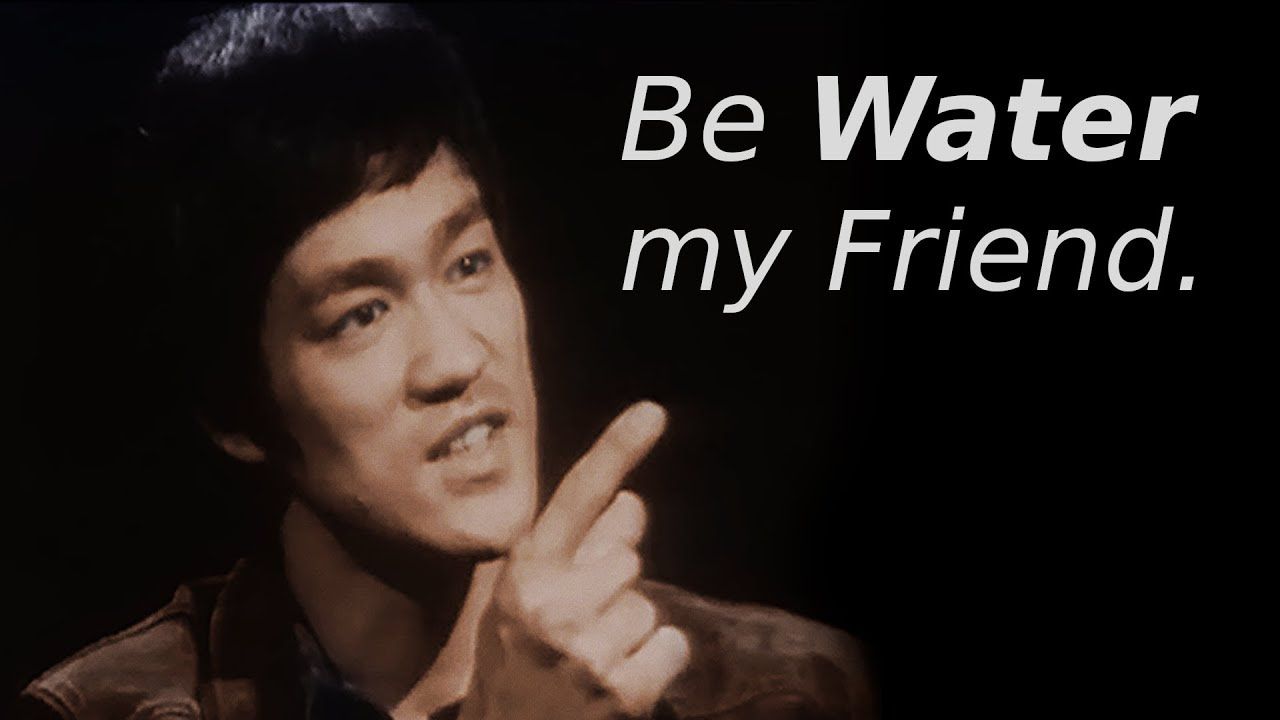
One of my favorite quotes from Bruce Lee was not completely original. The concept was already part of Taoism and Zen long before he said it, but Westerners had not heard it in the early Seventies.
"You must empty your mind," he said. "Be formless, shapeless, like water. You put water into a bottle and it becomes the bottle. Put it in a teapot it becomes the teapot. Water can flow or it can crash. Be water, my friend."
I think of this often when I work with my students on push hands and other close-up self-defense skills. I try to be water, and flow around resistance to find my way to my target.
What happens when you punch water? Bruce Lee talked about an inspiration he had when he was frustrated and punched water one day on a lake. Whether this story is true or not doesn't matter. Bruce said that when he punched into a lake, he was inspired because the water gave in to his punch and yet flowed around his fist.
Taoism says "the softes...
Dropping Power - Generating Power Over a Short Distance
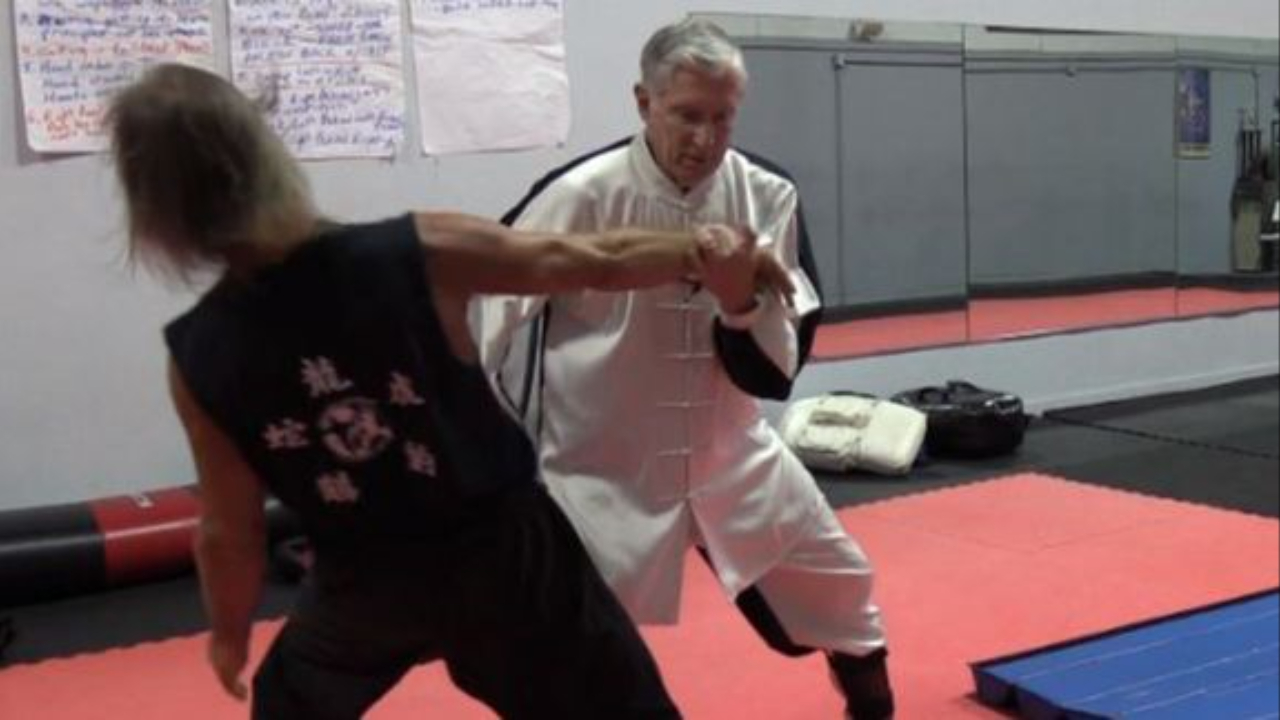
Have you ever heard of the "Teacher Test" in Taiji? When you meet a Taiji instructor, ask if they can do the Teacher Test.
Most often, they will stare at you with a blank expression, but if they actually know what you are asking, and demonstrate the Teacher Test, you have found a good teacher and you should sign up for instruction.
The Teacher Test was demonstrated to me by my first Chen Taiji instructor, Jim Criscimagna, the day I met him in early 1998. I had been in martial arts for 25 years at that point, and I had read about the Teacher Test in an online forum but had never seen it. When I asked Jim about it, he asked me to stand next to him and put my hand on his shoulder.
"Now, without cocking your arm and shoulder -- without using local arm and shoulder muscle -- and without changing your stance -- knock me off balance," he said.
I was paralyzed...
Should Martial Arts Students Just Be Quiet and Do What They are Told?
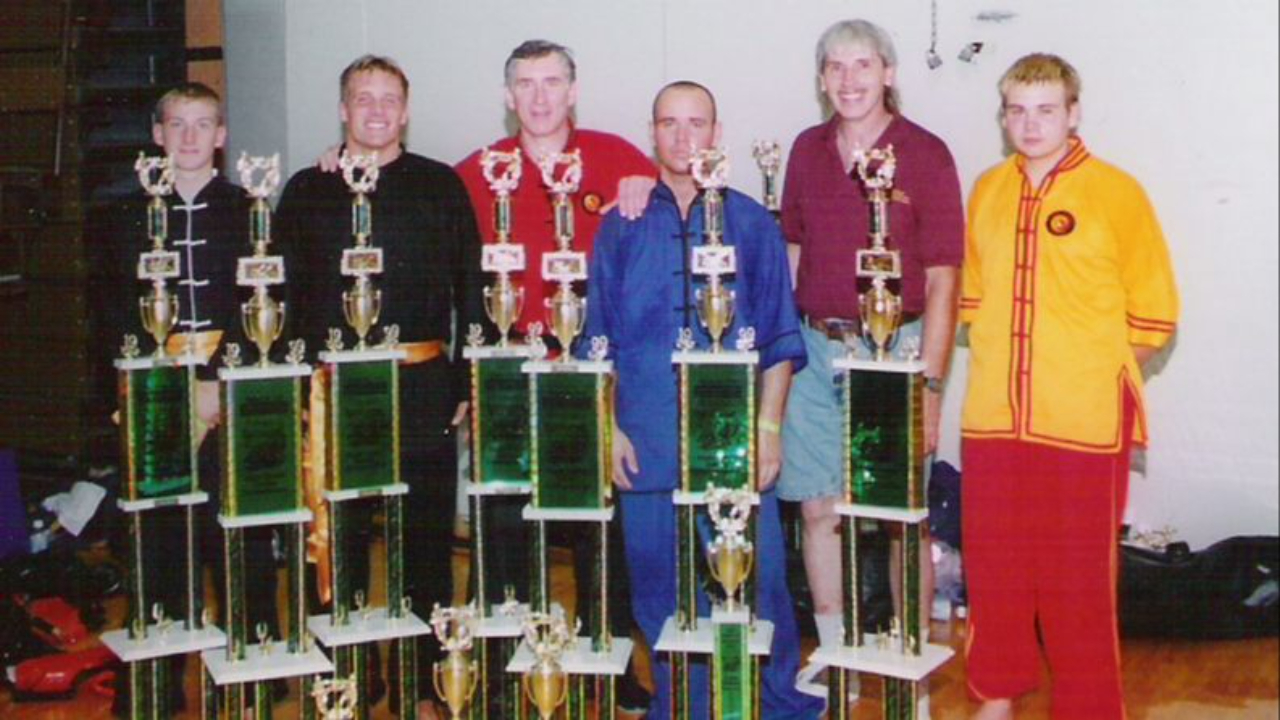
There was an interesting comment online last week. An internal martial artist (I'm not sure if he is a teacher or not) said that when students begin studying, they should not ask questions. They should understand that they do not know enough to ask questions. Instead, they should do what their teacher tells them to do, over and over until they progress for a while.
He said that ego makes us think we need to know more than our teacher is telling us, and we need to "let it go" and follow. Just follow, and all things will become clear in time.
I could not disagree more.
I first began teaching at a small fitness center in Iowa. Rich Coulter and Chad Steinke were among my first students. They were both teenagers at the time, and when they walked in, they sized me up like hired guns. It was my first week as a teacher -- October, 1997.
As I showed both of them basic techniques that I taught at the time -- corkscrew punch, sunfist punch, front snap kick, roundhouse kick, etc. -- they woul...
Which Art Would You Use in a Fight?
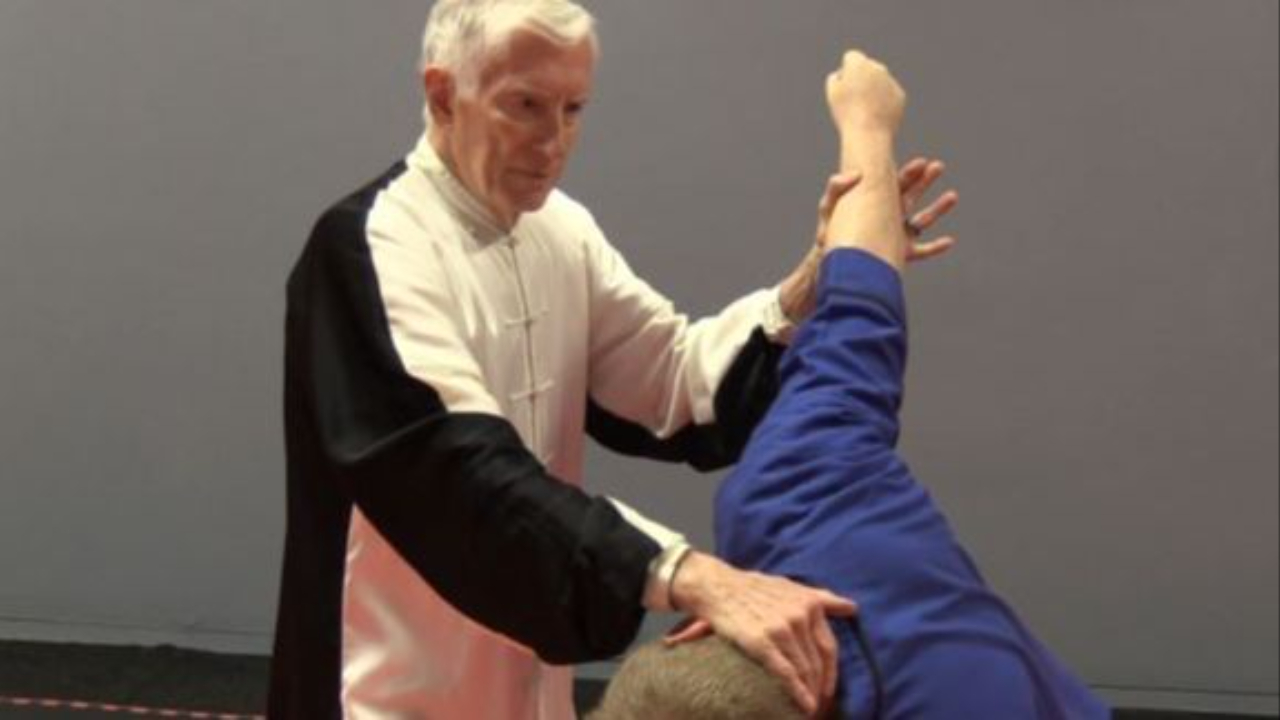
I have been asked this question many times over the years, in different ways. This morning I received an email and it was worded this way (the email is italicized):
Firstly, I enjoy your site. Thanks for sharing your knowledge and experience.
Each of 3 internal arts approaches the problem of self-defence in a different way. By learning all 3 arts does this promote a confusion in response to an attack- a mental freeze caused by having too many options.
I would imagine that the response would be determined by which response has been imprinted on "muscle memory" the most. If this is the case then does learning all 3 arts inhibit a quick response or at least not help.
On the other hand do all 3 arts feed off each other in some way which helps each one to improve? How do all 3 internal arts work together? Are they independent responses or interdependent?
Or do all 3 arts combine in a unique way in each individual so that in a self defence situation the response is tailor made by ...
Silk-Reeling and Self-Defense: Strategic Handling of External Force
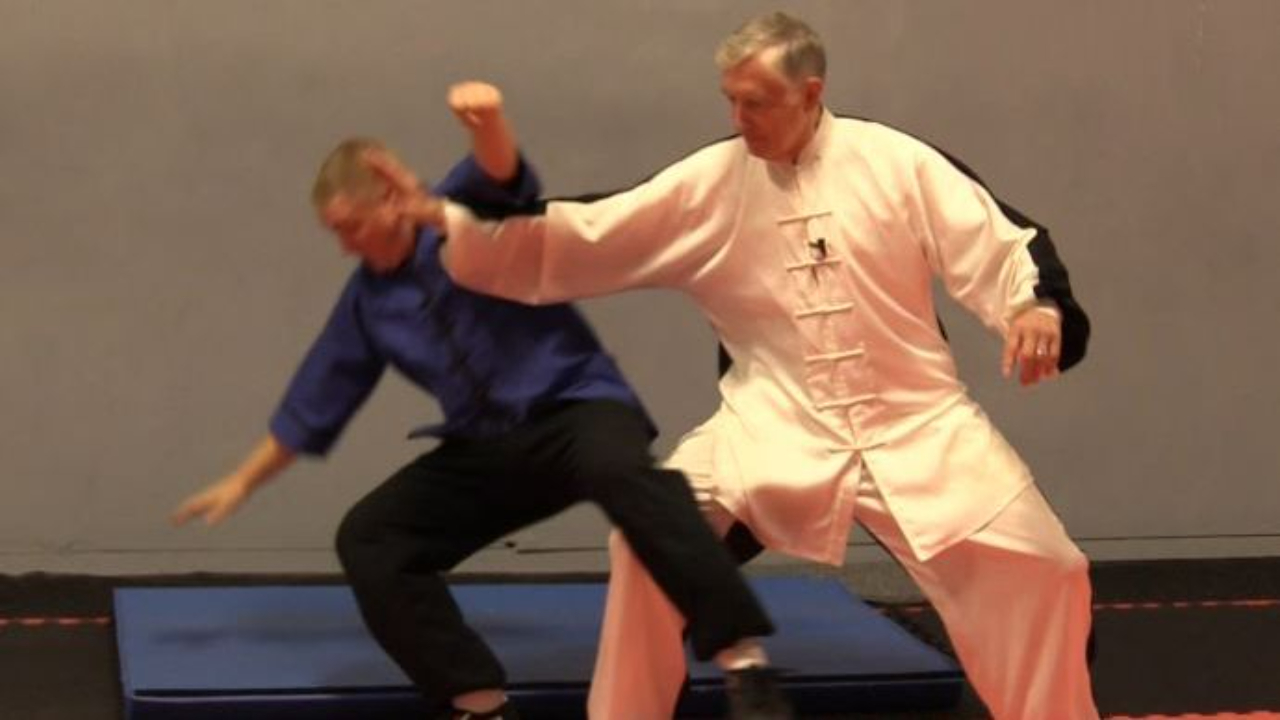
Yesterday, when my new Silk-Reeling Energy ebook was released through Amazon's Kindle, a couple of friends gave me grief for believing -- they thought -- in an invisible mystical energy that can't be measured by scientific methods.
I laughed, because the use of the word "energy" throws off a lot of Westerners. Let me clarify. And as I do, I will show some photos of a self-defense application for one of the exercises that are described in the Silk-Reeling Energy ebook and on the Silk-Reeling DVD.
When the Chinese talk about a certain energy, such as the 8 Energies of Taiji, it is a bad translation when we think of it as a scientifically valid energy. Actually, it is a method or particular skill that helps you strategically handle external force that is applied to you -- a punch, for example.
Think of it like a good baseball hitter -- my hero Pete Rose, for example. Pete was not a gifted at...
What is Silk-Reeling Energy?
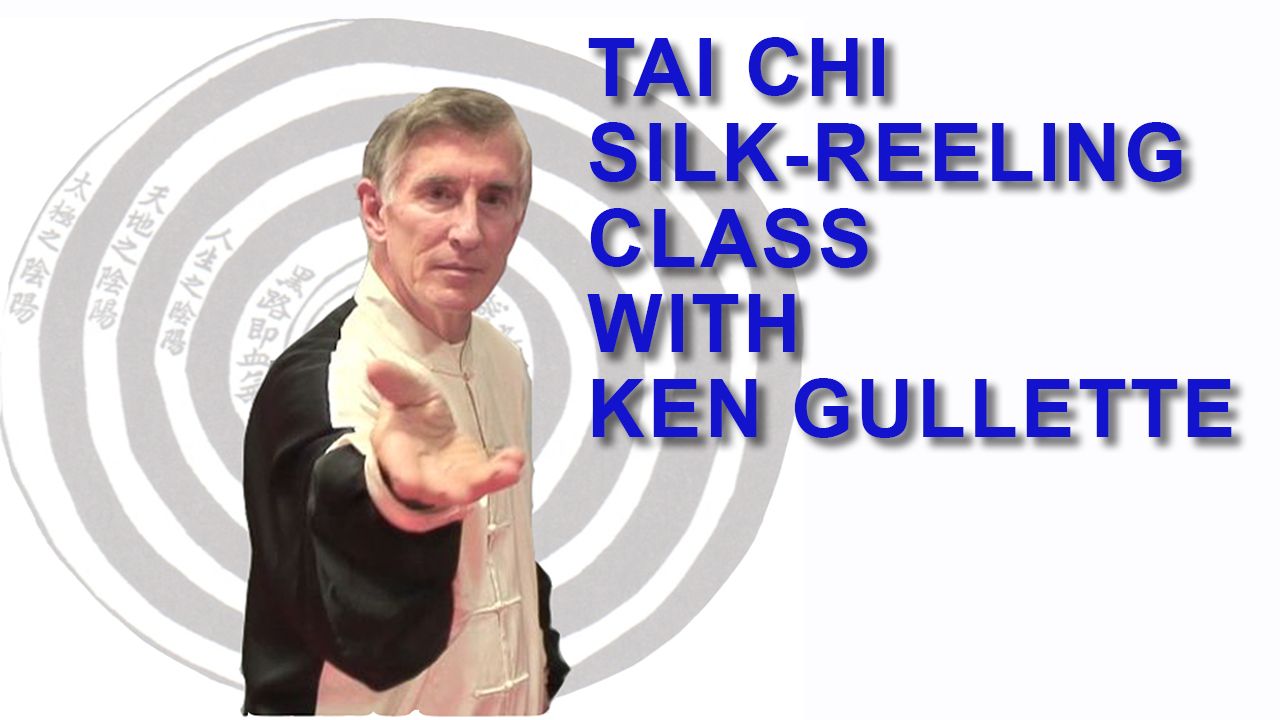
Silk-reeling energy is one of the unique qualities of the internal arts of Chinese kung-fu, particularly Tai Chi and Bagua, but it is also found in Hsing-I, at least the way I practice it. The Chinese refer to this skill as "Chan Ssu Jin."
Silk-reeling energy is a physical skill. There is nothing metaphysical or mystical about it.
Many people around the world have been fooled by the word "energy," which is a poorly translated way of saying "method" or "power" in Chinese. When we hear the word "energy" being used in this way -- including peng energy or liu energy or any of the "energies" of Tai Chi -- we think that it is referring to a scientifically valid electrical or chemical/physiological energy coursing through our bodies.
If that were the case, Michael Jordan used "slam energy" to dunk a basketball. Babe Ruth was a master of "swat energy" when he hit a home run.
That would be wrong. Silk-reeling "energy" is a physical method of using spiraling movement through the body, conne...
Bruce Lee was Right - We Need Emotional Content and Shen (Spirit) Too
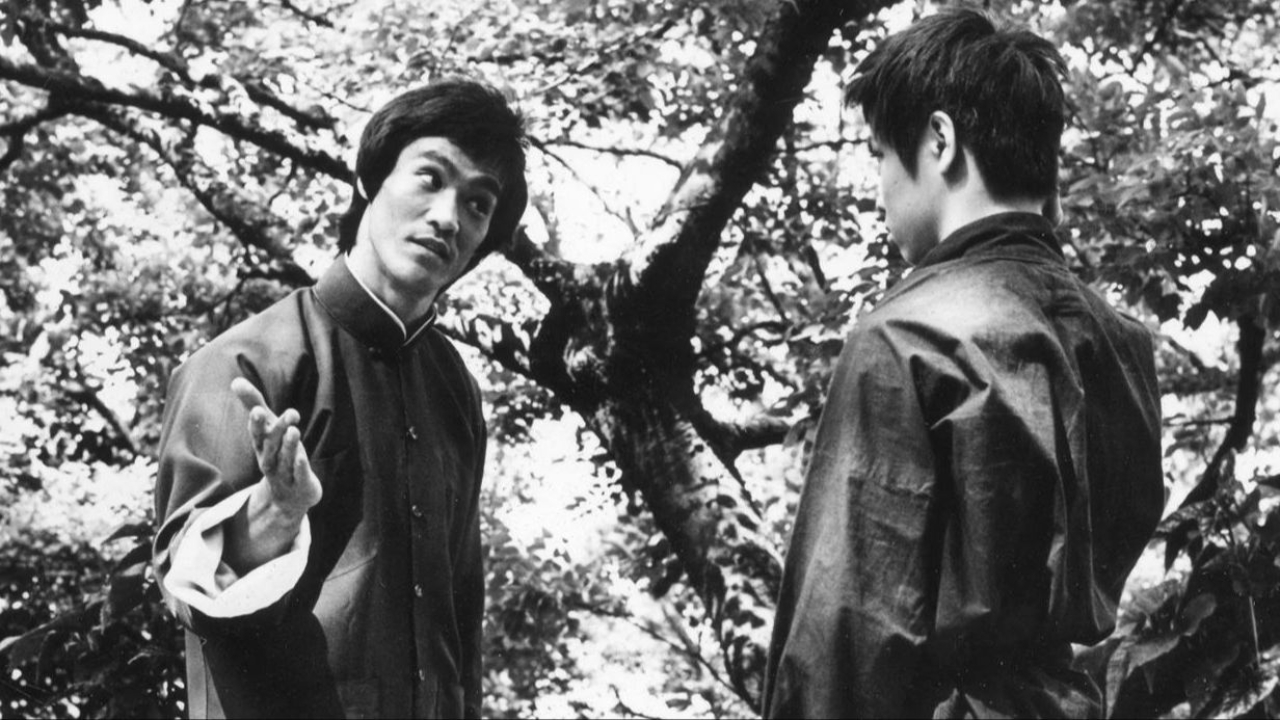
One of my favorite scenes in a Bruce Lee movie is when he lectures a young student about what he perceives as a lack of "emotional content" in the young man's movements.
When I was a younger student, practicing techniques with fellow students, one of my teachers would occasionally warn us to maintain our "spirit." When we received a certificate of rank, the certificate mentioned the "spiritual discipline" involved in achieving the rank.
In Tai Chi, the Chinese term "shen" means spirit. It is not a supernatural spirit -- it is an awareness of your action and a physical fullness that means you are giving it 100%. You are in the moment.
Shen is also translated to mean "heart," but it is the same thing. You are emotionally connected (the heart is often associated with emotion) to the intent of the movement or activity.
It applies to any martial art and it also applies to other aspects of your life, from relationships to work and other activities and endeavors.
How many times have you...
Connecting with Your Opponent - Philosophy in Action
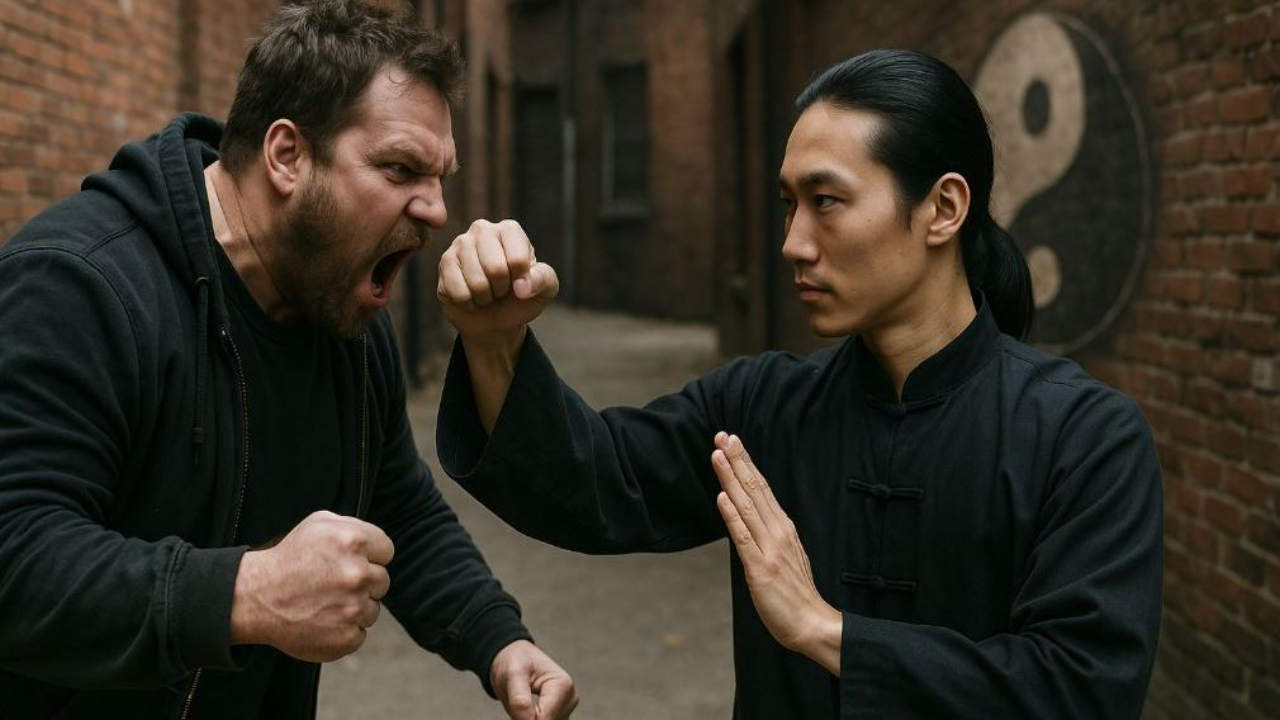
One of the most important concepts in the internal arts is "connecting."
From a philosophical perspective, you should be connected to everything in the Universe. Since you are part of the same energy that created everything, you are connected to it all. Seeing yourself as separate is the first step toward being out of harmony.
From a self-defense perspective, you should connect with your opponent. If someone attacks you, he has stepped out of harmony with the Universe. He will either hurt or kill you, or he will be put back into harmony with nature, which can happen if you are skilled at self-defense.
There is an old saying in Tai Chi -- "My opponent moves and I move faster."
This requires you to connect with your opponent and know his intent almost as fast as he does. To illustrate, I've pulled out a couple of photos taken around 2006.
One of the drills we use is fun and effective. In the top photo, I stand with my palms together and hands extended. My partner stands with his ...
Focus on the Moon, Not the Teacher -- Taiji, Xingyi, Bagua Advice
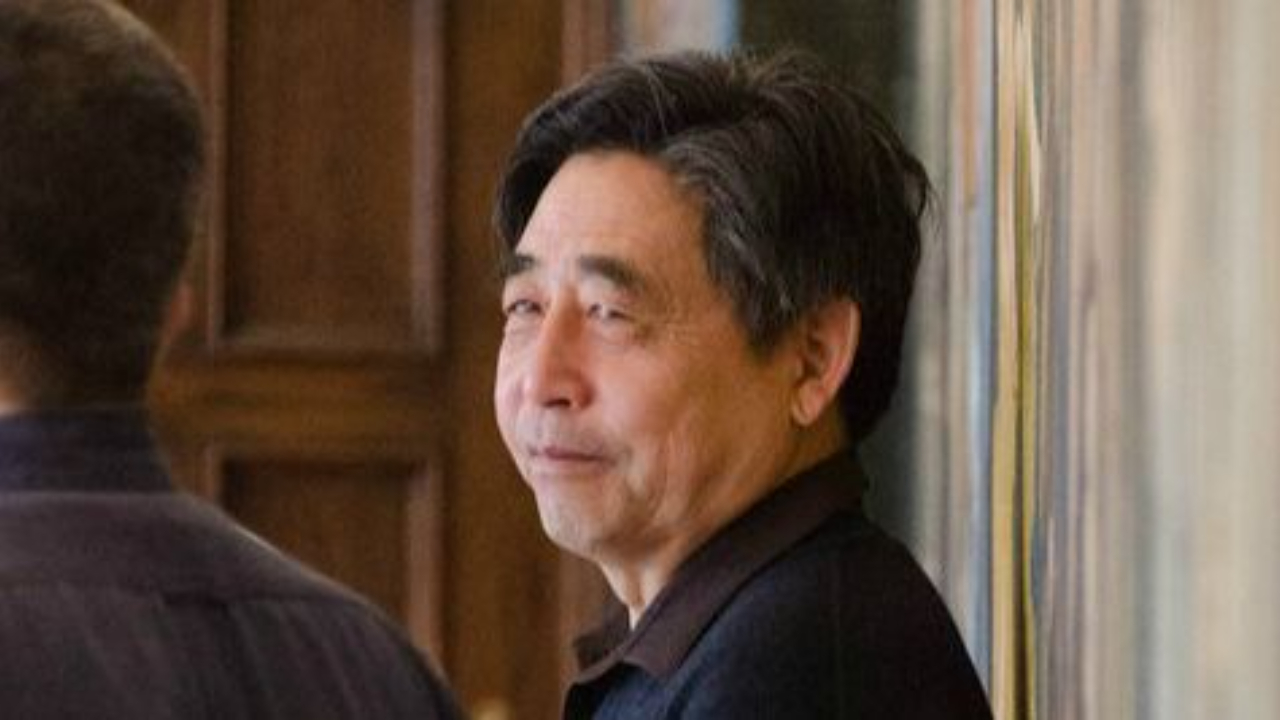
There is a Zen proverb -- When a master points at the moon, many people never see the moon, they only look at the master.
Bruce Lee said it in a slightly different way, when he told the student, "It is like a finger pointing a way to the moon." When the student gazes at his hand, Bruce slaps his head and says, "Don't concentrate on the finger or you will miss all that heavenly glory."
I've been very busy since the Chen Xiaoxing workshop on Xinjia Yilu two weeks ago and haven't written much about it since that time. Instead of writing, I've been practicing the movements we went through in Chicago. It has been on my mind a lot.
The workshop was a great experience, and it was organized in a way that promoted learning. In workshops past, I would scribble as many notes as possible during breaks or at the end of the day, trying to remember the little details. In this workshop, remembering wasn't a problem.
Chen Xiaoxing would demonstrate a sequence of movements several times -- slowly --...
How Long Does It Take To Become A Master? The Joy of the Journey
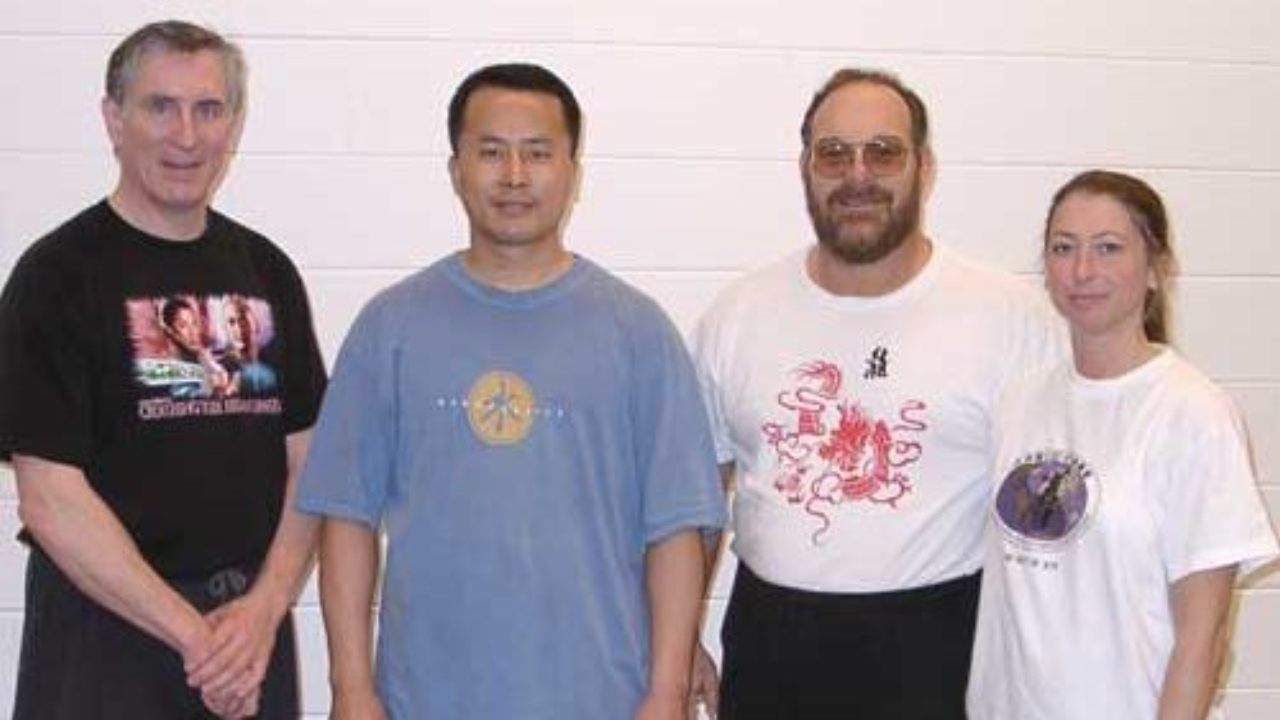
A young student was excited to meet a Kung-Fu master. Before his first class, he asked, "How long must I study before I become a master?"
The master replied, "You must study for ten years."
"But I will practice very hard!" said the young student.
The master replied, "Then it will take twenty years."
The young man said, "But I want to be your best student!"
"Ahh," said the master. "Then that will take a lifetime."
I love that old story.
If you've been teaching for any length of time, you'll be asked, "How long does it take to get a black belt?"
As if a black belt is something great. Once you earn a black belt, if you have any sense of reality, you understand that you have just begun. It's the same as getting a Bachelors degree in college. Advanced study is next.
It's always amazed me how many people talk about loving martial arts but how few have the drive or the commitment to reach even a black belt level.
I'm not sure when I realized that I would never become a master of tai...
